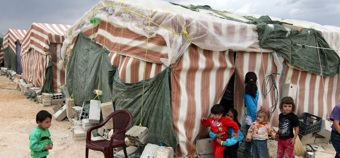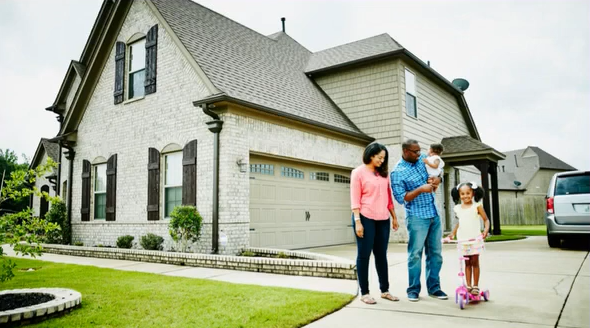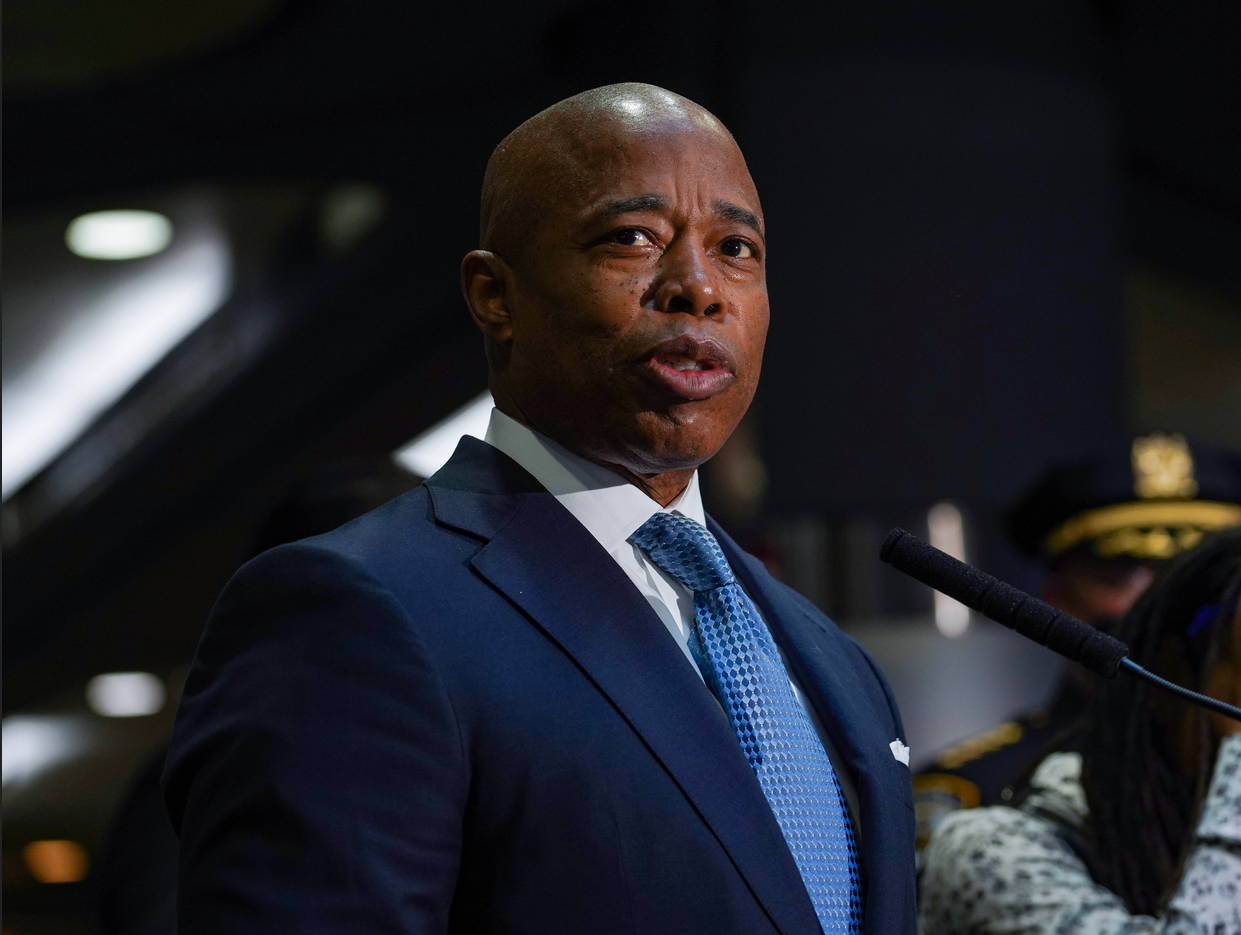Chest high metal crowd control barriers manned by armed guards—since late September they have stood outside the Arrivals Hall on the Lebanon side of the Masnaa border crossing with Syria. For Syrian and Palestinian refugees fleeing the continuing violence next door and trying to get into Lebanon the message is clear:
Don’t come within 40 meters of the Immigration building, and don’t even dream about coming to the staffed counter with any documents. None of you is welcome. Ninety eight percent of you will not be allowed in, and those who are better leave within 24 hours and have a valid airline ticket to prove your intention to depart.
Over the past few years, this observer has crossed at the Masnaa border crossing fairly frequently. Yet never have I seen such an avoidable humanitarian disaster for families seeking to get out of war-torn Syria. And it is reportedly much the same at the Jordanian border. Many refugees have found themselves squatting here—first in the heat, and now in the cold autumnal nights that increasingly are seeing cold rainfall. No other option seems available to them than to try to enter Lebanon, this as they express the forlorn hope that God in his mercy will help them.
And so here they sit, bewildered, outside the Immigration building, exhausted, little if any money in their pockets or purses, with their children thirsty, hungry, and often crying. Nearby are the local offices of the UN High Commissioner for Refugees (UNHCR), but the staff are overwhelmed, and the fact that Lebanon hasn’t signed the 1951 Refugee Convention doesn’t make things any easier for them. Extending humanitarian assistance to refugees has never been embraced by certain anti-Palestinian politicians in Lebanon, who apparently see no value in it for themselves, but that being said, it is a fact that the sheer numbers of refugees entering Lebanon now has added to pre-existing problems with respect to infrastructure, chronic water and electricity shortages, massive unemployment, exploding sectarian conflicts, and the like.
All of which can make for some harrowing scenes at the border checkpoint. During this observer’s most recent crossing, a Syrian gentleman sat on the roadside with his wife, five children, and one grandchild, explaining to me how the family had lost everything in Homs. No other choice had they than to try and seek safety in Lebanon, since Egypt and Jordan are refusing entry to Syrian refugees. His oldest child, a lovely girl named ‘Rasha,’ who appeared to be in her mid-20s, sat nursing her infant son as we talked. Rasha’s husband, he informed me, had been killed by a mortar last spring on a day he had gone out shopping for food near the old city of Homs. In desperation, the gentleman suggested that I purchase his daughter and her baby, because he saw no future for them and he could no longer provide a home for them. Plus the baby appeared ill.
After my long explanation of why, for several reasons, this was not possible, he stated his belief that my being an American meant that the Lebanese guards would allow me to enter with Rasha and her baby; they in turn could live with me until the crisis ended, and on second thought, I did not even have to pay him anything. Just save her and her baby. With respect to the Lebanese border guards, his idea was unrealistic. Most Americans do tend to be liked around these parts, and most of us try to be goodwill ambassadors because we love our country and her ideals. But it is not the case that Americans can bend immigration regulations, nor should it be. Before the crisis, Syrians and Lebanese could simply take a road not patrolled, avoiding border crossings and formalities altogether, but these days that is very dangerous.
I gave the gentleman my card and a little money in case his family and he were somehow able to get over the border, and promised him that if they were successful I and friends would try to help. I have heard nothing more from him. But I have learned, from a couple of NGOs, that encounters such as I experienced are not all that uncommon these days, with women and children stuck at the Syrian-Lebanese border being bought and sold—and with bribes sometimes offered, and occasionally paid. The frequency of this is difficult to assess, and the reality may be exaggerated, but certainly not exaggerated are the facts of the increasingly inhumane conditions that Syrian and Palestinian refugees face in Lebanon—a country in which they are denied some of the most basic, elementary rights by the government, and where they also run the risk of harmful brushes with various militias and hooligans.
Discussions I have had—with staff at the central.
Immigration office in Damascus as well as Syrian human rights associations and Syria-based Arab journalists who have researched and written about this subject—reveal not only a bleak picture of the humanitarian situation, but also a growing level of disgust in Syria over what is happening to their countrymen in Lebanon. Cases of Lebanese discrimination and harassment targeting Syrian refugees, including violations of international customary law and the 1951 Refugee Convention, have become commonplace. In addition, Syrians increasingly are falling prey to violence. Human Rights Watch said it had documented a string of attacks by Lebanese residents against Syrian refugees in August and September. Those interviewed described being stabbed, shot and beaten, and several claimed that they were either too afraid to report the crimes, or that they had and their stories had been dismissed by security forces when they did. HRW said that attacks it documented were most often carried out by private citizens, but in several cases they appeared to have “the tacit support” of authorities, and the international organization has urged security forces and local authorities to step up protection of Syrian refugees.
“Lebanon’s security forces should protect everyone on Lebanese soil, not turn a blind eye to vigilante groups who are terrorizing refugees,” said HRW Deputy Middle East Director Nadim Houry.
One especially taxing problem is the financial cost exacted by Lebanon for Syrian refugees to register a baby. In Syria, anyone from Lebanon, or from any country for that matter, can register a newborn for the equivalent of 1,000 Lebanese lire (around 66 US cents). The process takes around fifteen minutes. But not so in Lebanon. According to a report by the Taanayel General Hospital in central Bekaa, the number of new babies born to Syrian refugees, since March 2011 when the crisis began, has exceeded 15,000, just in the Bekaa Valley alone. In North Lebanon, the UNHCR estimates more than 5,000 births, and the Syrian Embassy in Beirut says there are now approximately 6,000 births per year among displaced Syrians in Lebanon. But for many of these parents, the registration process is nearly impossible.
First they must obtain a certificate from the hospital or midwife indicating the date of birth—generally not a big problem, but then the baby must be registered at the office of the local Muktar. That is if they can prove legal residence, and if the local Muktar is willing to help, which is not always the case. Sometimes he wants a fee, and in some reported cases a bribe, in order to forward the paperwork to the Directorate of Personal Status. If the parents are lucky, their application might then be sent to the Exterior Ministry for another approval, and finally may reach the Syrian Embassy to complete the process of registering the newborn. But the process can be delayed or scuttled along the tortuous procedural path for any number of reasons, including escalating anti-Syrian sentiment in government offices and among certain confessions and political parties.
According to one Syrian refugee, the minimal fees charged by Lebanon, plus the traveling back and forth to different offices and locations so as to follow up on the procedures, can cost close to $500, with no success guaranteed. The amount is a fortune for most refugees, but an even greater concern for Syrian parents is having no nationality for their children. Says Joelle Eid, of the UNHCR press office, the offspring risk being added to “the stateless Kurds of Syria, since 1960, whose number of births in Lebanon is currently around 840 children.”
One chilling reason that the Kafkaesque procedures violate basic humanitarian principles is that they are forcing Syrian refugees to smuggle their babies into Syria in bags, since of course the infants would not be allowed to cross the border from Lebanon without full documentation. It is estimated that over the past 24 months more than 50 Syrian newborns, passing through Masnaa, have died from suffocation or drug overdose while being hidden from immigration officials. Parents usually are not sure how much of what drug to give their babies in order to keep them quiet and sleeping as they sneak them through the border, and too many are not waking up—all so that the parents can make it back over the border, back into their perilous, war-torn homeland, so that they may register their children’s births—in Syria, since it’s practically impossible to do so in Lebanon.
It is but one of the current abuses that are causing outrage in Syria and among advocates of human rights everywhere but it is not the only one. Both the UNHCR and HRW are accusing the Lebanese Army of committing “serious” violations against refugees, including in Ersal, where more than 200 Syrian refugees, including minors, were arrested without charge. The arrests took place September 19-24. Other reports accuse the Army of evicting, without any pretense of due process, a large number of refugees living in private homes.
Then on September 25, the retaliatory measures reached a peak with a crackdown in the area of Ras al-Jafar, affecting nine informal communities with a total population of around 5000. One report states that during the raids, tents were burned in one of the random communities, completely destroying 96 tents. The raids were coupled with a large campaign of arrests targeting especially males. Some 300-500 people were detained, and while most, though not all, have been released, reports have emerged of physical and verbal assault, intimidation, and humiliation—claims that are corroborated by UNHCR photographs, including of shackled Syrian refugees laying on the ground exposed to the elements.
An Army spokesperson has dismissed as “lies” another allegation about the torching of tents in Ersal last week, yet random raids are becoming commonplace at scores of these “informal tent settlements,” as UNHCR refers to the fetid, sewage-soaked camps—camps which soon will be covered in snow and ice. Often in these camps more than 20 people will live in a tent that is intended for one family. Most of the tents are covered with nothing more than nylon, and more than 50,000 Syrian refugees in the Bekaa Valley are now living in these kinds of settlements—that’s 50,000 out of a registered total 275,000 in the area.
In addition to these calamities, more than 45 municipalities have imposed curfews on Syrian nationals, a move widely seen as a racist practice and one also in violation of international humanitarian law and the 1951 Convention. HRW comments that the curfews “contribute to a climate of discriminatory and retaliatory practices against” the refugees. Curfew violators are reportedly given a warning or, in some cases, are “taken to the municipality for questioning” where they may be detained for hours.
The reports have fueled anger among lawyers in Damascus, at the Lawyers Syndicate across from the Cham Palace Hotel, where seminars have discussed the legal problems facing Syrian refugees in Lebanon.
In addition, the Faculty of Law at Damascus University is considering setting up a legal defense team to help Syrians in Lebanon challenge arbitrary and discriminatory applications of Lebanese laws.
“Syria helped them (the Lebanese) many times during their 15-year civil war and during the 2006 July war!” commented a teacher at a government primary school visited by this observer last week. “We gave them everything they needed. Our government buildings, social services, free medical care, free education, schools, hygienic conditions, peace and quiet, food and sometimes cash stipends. What about us? Is this the Lebanese way of saying ‘thanks’ to the people of Syria?”
She then exclaimed, “Someone must stop these attacks on our families.”
A savvy graduate student in Damascus by the name of “Ahmad” commented to this observer and to his Palestinian friend from Yarmouk camp, who having lost her own home due to shelling, now volunteers helping Syrian refugees forced to live in some of the parks in Damascus, that ISIS (Da’ish) and al-Nusra will almost assuredly be cognizant of these problems, and poised to capitalize on them, as they prepare to extend their caliphate into Lebanon—and he probably has a point.
Among the many reasons Lebanon should immediately desist in the targeting of Syrian and Palestinian refugees is that they are pushing many toward supporting those that the Lebanese government claims to be opposing.






